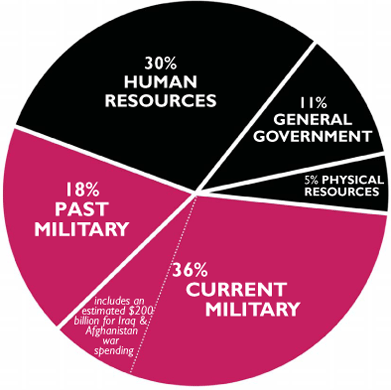Reduce congress's staffs by the unemployment percentage.
Actually cut about 1/2 of overseas military spending by closing 1/2 of the bases. That would save about 250 Billion or so a year.
Fire all contract military employees. Esp the overseas ones, that would not even impact the unemployment rate.
cut all new highway construction, focus only on maintaining what we have.
A 5 yr moratorium on new government building construction.
Make new laws with TEETH in them about Medicare/Medicaid farud and hire new investigaorttor and agressibly chase down ALL forms of fraud and corruption in our government programs.
Actually cut about 1/2 of overseas military spending by closing 1/2 of the bases. That would save about 250 Billion or so a year.
Fire all contract military employees. Esp the overseas ones, that would not even impact the unemployment rate.
cut all new highway construction, focus only on maintaining what we have.
A 5 yr moratorium on new government building construction.
Make new laws with TEETH in them about Medicare/Medicaid farud and hire new investigaorttor and agressibly chase down ALL forms of fraud and corruption in our government programs.
Last edited:


